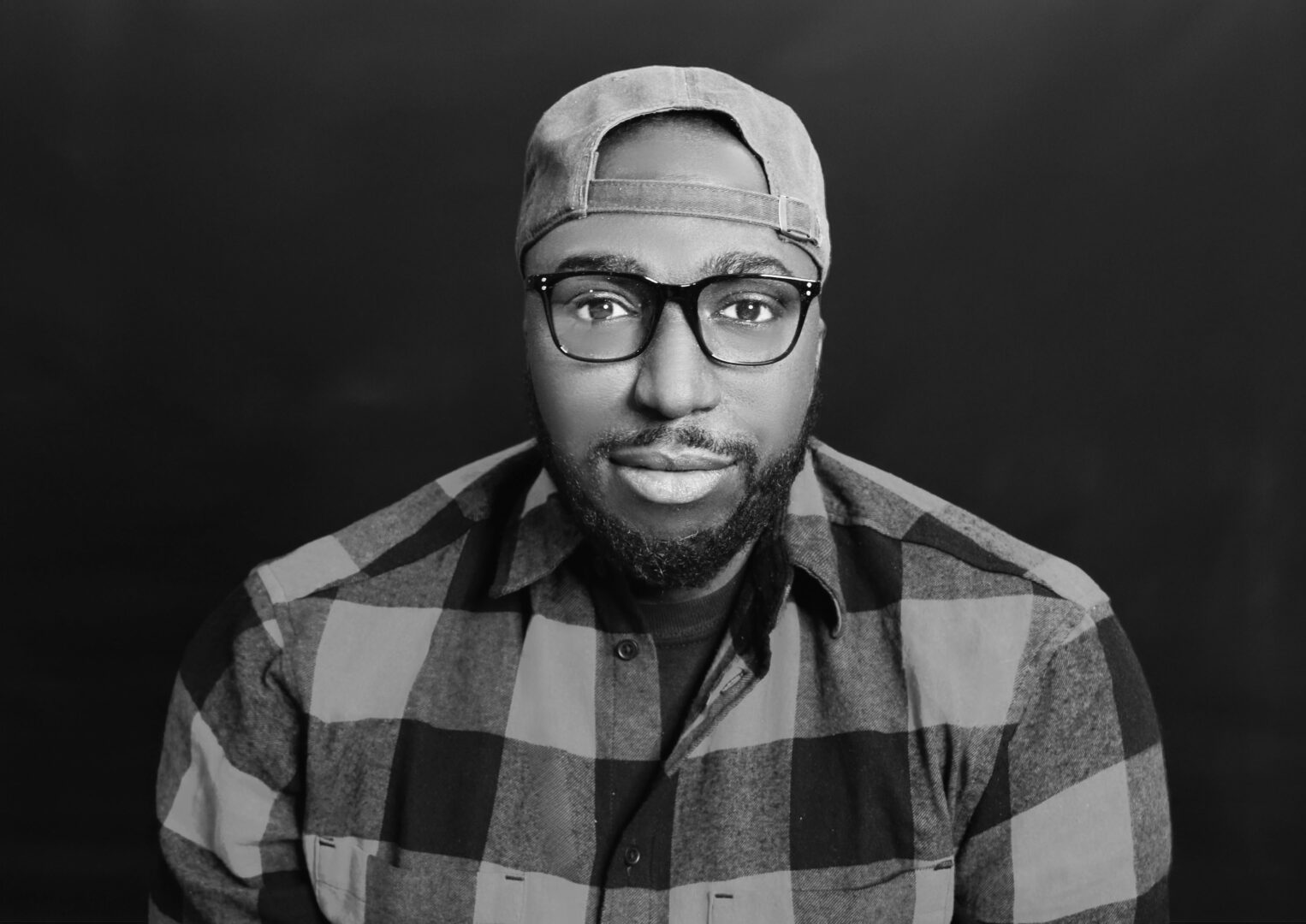We’re excited to introduce you to the always interesting and insightful Brandon Gates. We hope you’ll enjoy our conversation with Brandon below.
Brandon, so good to have you with us today. We’ve got so much planned, so let’s jump right into it. We live in such a diverse world, and in many ways the world is getting better and more understanding but it’s far from perfect. There are so many times where folks find themselves in rooms or situations where they are the only ones that look like them – that might mean being the only woman of color in the room or the only person who grew up in a certain environment etc. Can you talk to us about how you’ve managed to thrive even in situations where you were the only one in the room?
At this point, being the only one in the room might as well be my brand. But that’s exactly why I’ve learned to move seamlessly through both professional and creative spaces.
I’ve been the lone Black journalist in editorial meetings, the only professor of color in the adjunct office, and, perhaps my toughest role yet, the only person in a sketch comedy class who understood the cultural significance of Living Single.
In journalism, I often find myself politely (yet firmly) suggesting that maybe, just maybe, a story on race and politics should feature at least one Black expert. And in comedy school? Well, let’s just say it’s not naivete—it’s a numbers game. There probably aren’t too many other “quirky Black guys” eager to give up their Monday and Wednesday nights just to get 30 seconds of feedback from retired SNL writers trying to speed through dozens of students’ sketches in a single sitting.
But the real key to being “the only one” is turning isolation into influence. Instead of shrinking, I double down. I make my voice indispensable. I don’t just point out the gaps, I fill them. And when people don’t quite “get” where I’m coming from, I use humor to bridge the gap. (You’d be surprised how quickly a well-placed joke can turn an awkward silence into a teachable moment). And when that doesn’t work? I do my best to bring more like-minded folks into the room with me.
Of course, being the only Black man in many spaces can be exhausting. It’s a weight my white counterparts rarely have to consider. But more often than not, standing out has worked to my advantage. Whether it’s offering a fresh editorial perspective or introducing a room full of Chads to Abar: The First Black Superman (yes, it predates Black Panther by decades), I’ve learned to embrace the cultural exchanges that come with the territory.
Because if I have to be the only one, I might as well make it count.
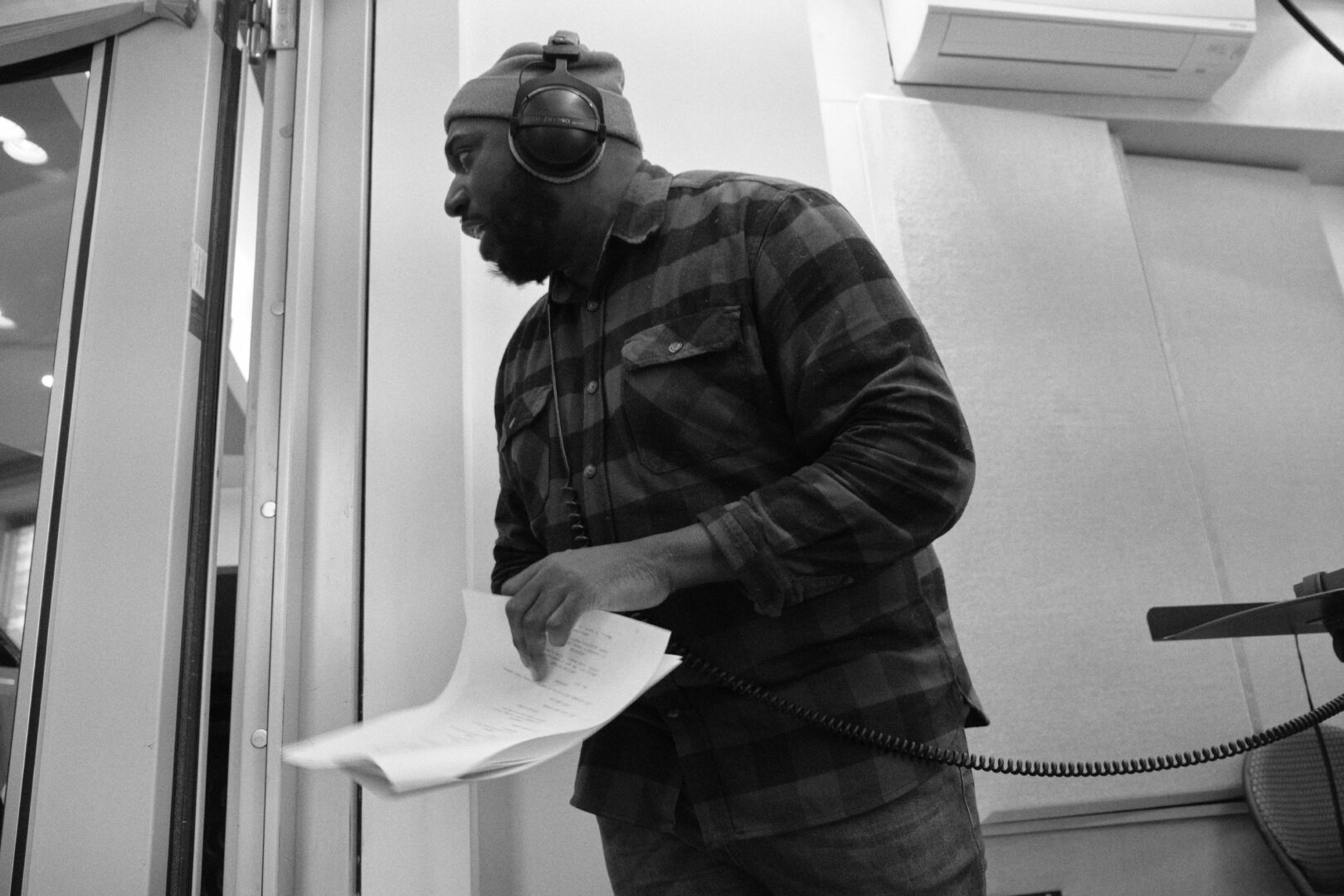
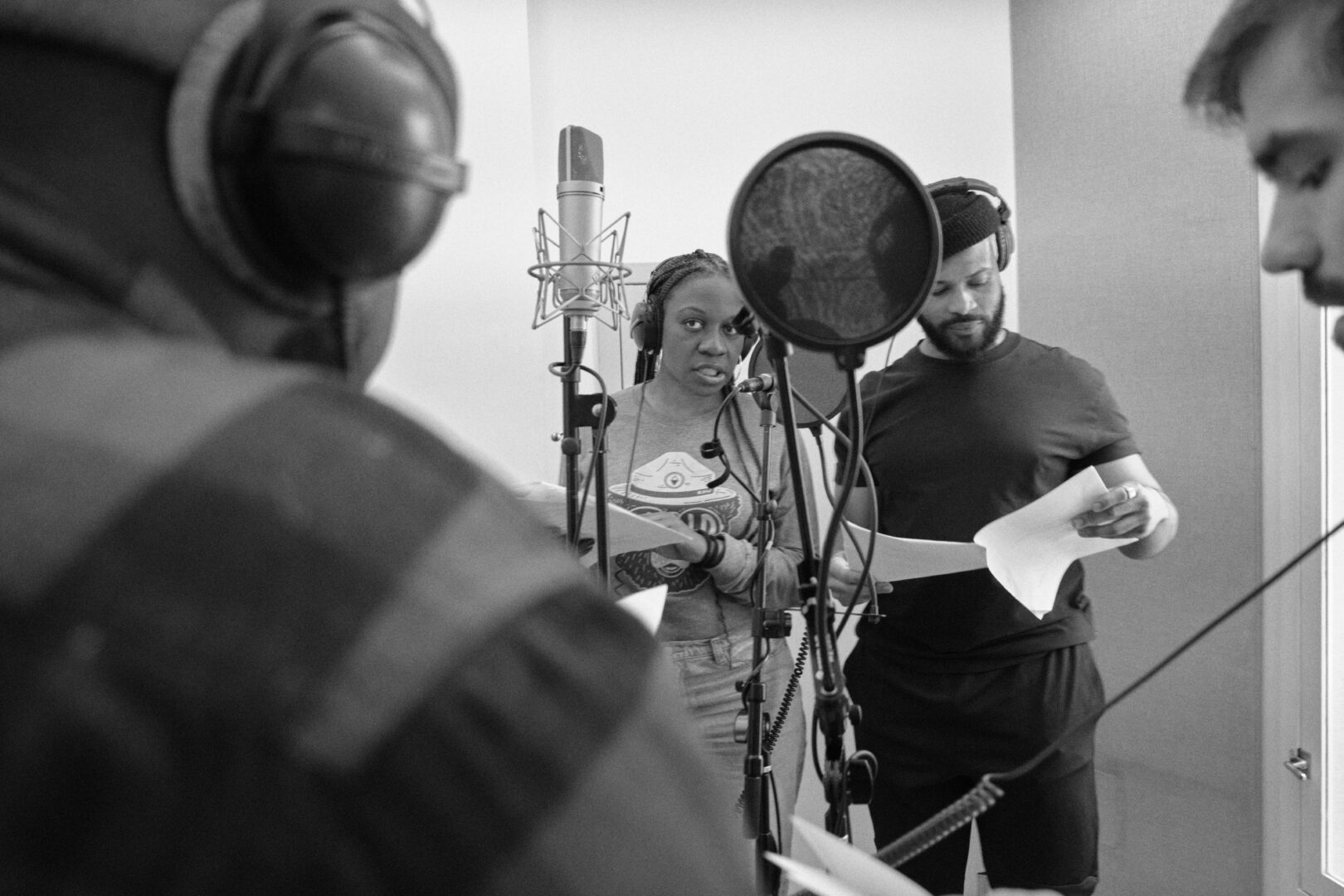
Appreciate the insights and wisdom. Before we dig deeper and ask you about the skills that matter and more, maybe you can tell our readers about yourself?
A few years ago, I would have simply called myself a journalist. I was already screenwriting, but I hadn’t yet built the confidence to fully embrace that part of me.
Now, I consider myself a storyteller—at large. My work moves between journalism, screenwriting, producing, and filmmaking because, to me, stories—whether nonfiction or fiction—are how we make sense of chaos. I write because I know firsthand what it’s like to grow up feeling unseen, to have to imagine the protagonists in books and on TV as Black because, back then, representation wasn’t exactly high on publishers’ or executives’ priority lists.
I grew up in Charleston, South Carolina, and while Brooklyn has been my home for the past 11 years, I still take pride in being a southern gentleman.
Looking back, it’s no surprise that storytelling became such a big part of my life. As a kid, I filled notebooks with poems and short stories just for fun. Movies were my obsession—not just because I loved the theater experience (which I still do), but because those two hours in a dark theater were my escape, a rare chance to be my unfiltered, goofy preteen, and later, my teenage self. Films like Batman & Robin, Drumline, Soul Food, and Speed shaped my adolescence, but O Brother, Where Art Thou? cemented my love for cinema and turned me into a full-fledged cinephile.
Still, I never saw my passion for film as a career path. Instead, watching 60 Minutes with my mom every Sunday evening—and seeing Ed Bradley in action—convinced me that journalism was my calling.
I always knew New York City would be part of my journey; I just didn’t expect it to happen so soon. After graduating from the University of South Carolina and struggling to find a journalism job, I took a huge gamble (which I don’t recommend) and applied to only one graduate program: Columbia University’s Graduate School of Journalism. Somehow, this first-generation college student got in and after a brief stint as an on-air news reporter in Augusta, Georgia, I made my way back to the Concrete Jungle as fast as I could.
Whether I’m reporting on politics and culture, crafting a screenplay, or producing a podcast, my goal is always the same: to amplify voices, challenge dominant narratives, and make people feel something—whether that’s outrage, laughter, or that eerie sense of having just stumbled onto a deeper truth.
Journalism lets me capture the world as it is, in real time. Screenwriting lets me create new worlds altogether. And no matter what medium I’m working in, I keep pushing to take up space in rooms that weren’t built for me, refusing to let systemic barriers dictate my limits. My voice, my stories—they matter. Not just because they’re mine, but because they reflect the lived experiences of so many others who don’t always get the chance to tell their own.
Last year, I wrapped up a nearly two-year festival run with Podcast Bros., an original comedy short that playfully dissected the “bro” archetype while poking fun at (most) men with podcasts—all in the style of a cheeky ’90s infomercial. To my surprise, we picked up multiple awards, including ‘Best Sketch Comedy’ and ‘Best Actor in a Sketch’ (me), along with a handful of official selections.
Right now, I’m preparing to launch the pilot episode of Today We Almost Died, a fictional narrative podcast about four Brooklyn roommates navigating the early days of the COVID-19 pandemic. The script has already earned multiple accolades, from ‘Best Comedy Screenplay’ to ‘Best Feature Screenplay,’ often competing against feature-length film scripts.
In both projects, I wore many hats—lead writer, director, executive producer—but I never did it alone. With little to no budget, I’ve relied on a network of generous, talented friends who’ve lent their time and creativity when they could. That’s why the next step for Today We Almost Died, after releasing the pilot, is securing funding to produce the full season. The episodes are already written, but as an artist—especially one living in New York City—I’m mindful of what I ask of my fellow creatives. Even if it’s just basic union small project rates, I want to compensate people fairly.
At the end of the day, I just want to tell stories that linger, long after the last word is spoken, read, or heard.
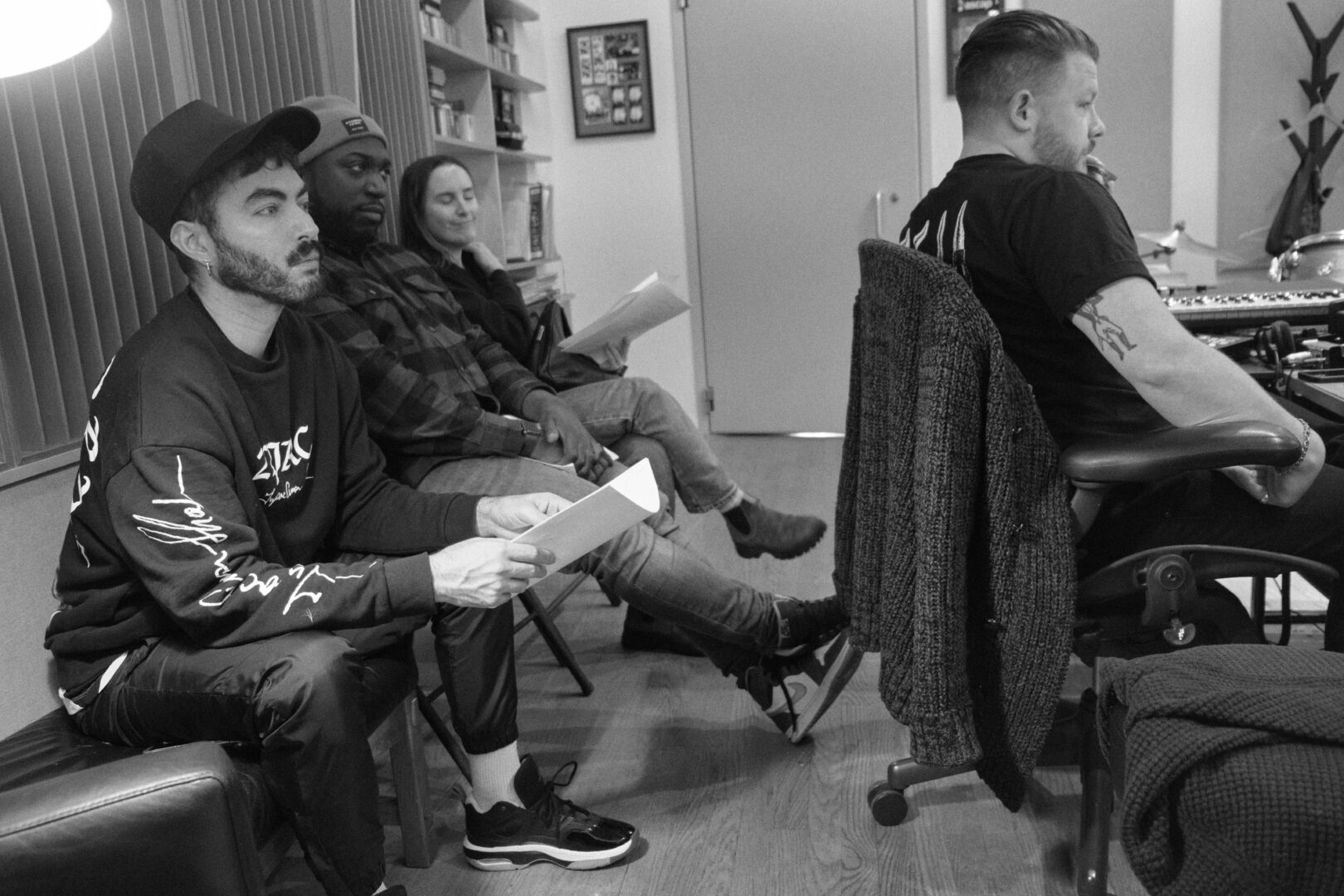
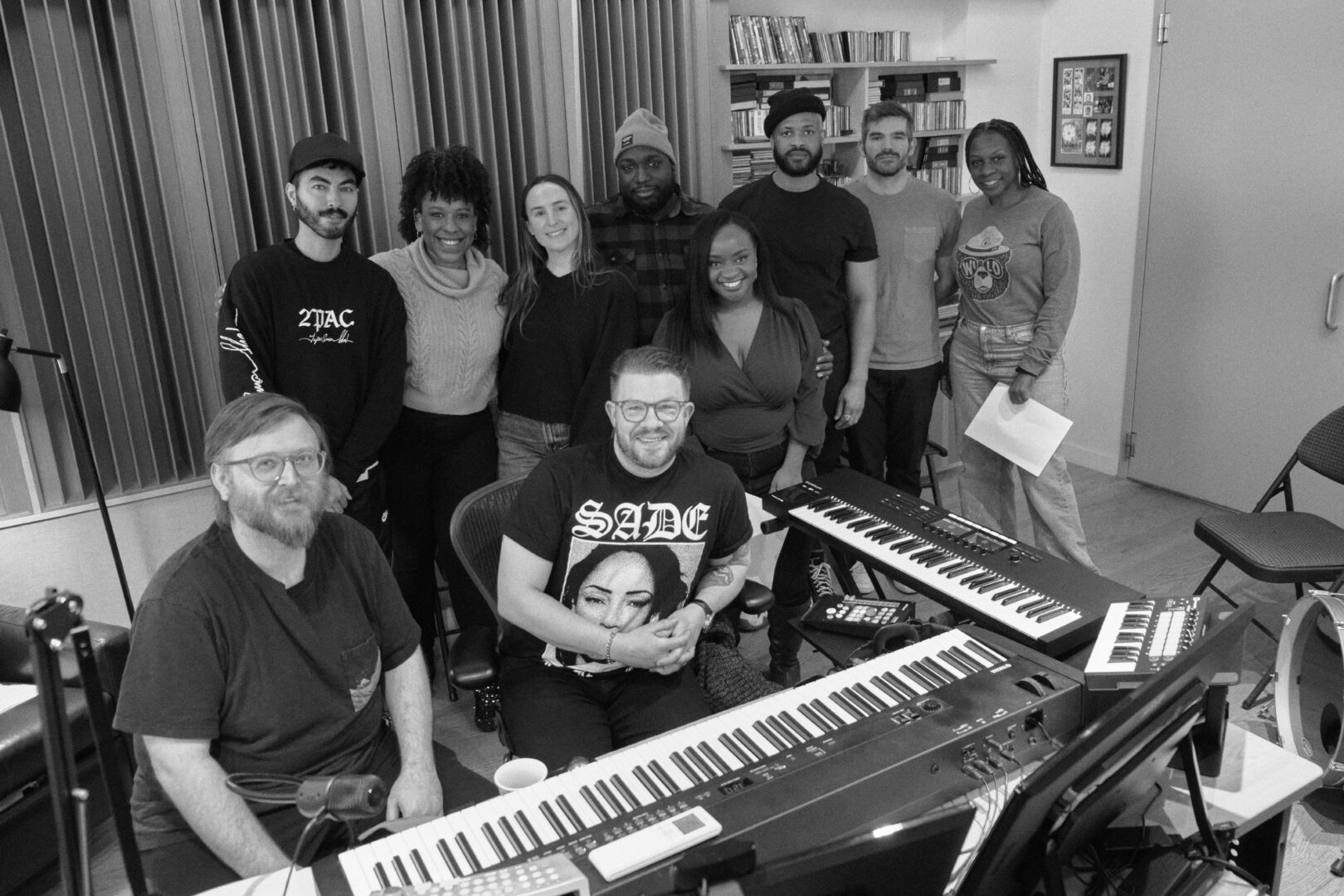
There is so much advice out there about all the different skills and qualities folks need to develop in order to succeed in today’s highly competitive environment and often it can feel overwhelming. So, if we had to break it down to just the three that matter most, which three skills or qualities would you focus on?
1. Adaptability – or, “Pivot or Perish”
One of the most valuable lessons I’ve learned is that adaptability isn’t just helpful—it’s essential. Whether in journalism, filmmaking, or any creative field, things rarely go as planned. I’ve been laid off multiple times, had projects stall due to lack of funding, and faced setbacks that could have easily made me throw in the towel. But I’ve learned that success often comes down to how well you pivot. When one door closes, I start looking for a window—or, if necessary, I build my own.
I once thought I’d spend my career solely in traditional journalism, but when the industry shifted, I realized I needed to expand my skill set. That’s how I found my way into screenwriting, podcasting, and filmmaking. Each pivot wasn’t about abandoning my original dream but about adapting so I could keep telling stories in new and meaningful ways.
Advice: Be open to change. If your industry shifts, your dream job disappears, or a project doesn’t pan out, don’t take it as a failure—take it as a sign to evolve. Every skill you learn, every experience you gain, can be applied in ways you might not expect. Be flexible enough to shift gears when needed, and always have a Plan B (or C, or D). The world belongs to those who know how to adapt.
2. Keep an Open Mind – Don’t Be Afraid to Put Yourself in Unfamiliar (or Even Silly) Situations
Growth happens when you push yourself beyond what feels comfortable. Some of the best opportunities in my life came from saying “yes” to things I wasn’t sure I was ready for or that felt completely outside my wheelhouse.
A friend once approached me to help produce his web series. I figured I’d assist behind the scenes, but instead, I ended up writing an episode and even directing a few scenes. That experience not only gave me a new perspective on storytelling but also planted the seed that eventually led me to sketch comedy school at the Upright Citizens Brigade.
When I finally enrolled at UCB, my plan was simple: I just wanted to write. Performing? That wasn’t part of the vision—until I found myself stepping on stage to perform a character sketch. It was nerve-wracking, but once I did it, I realized how much I loved it. That moment taught me that sometimes, the things we resist the most are the ones that push us forward in unexpected ways.
Advice: Be open to detours. Try things that scare you or that seem completely out of left field. You never know what skills you’ll develop, what passions you’ll uncover, or what doors will open as a result. Even if something seems silly, unfamiliar, or not “part of the plan,” lean in anyway. Some of the best moments in life come from the risks we didn’t initially intend to take.
3. Become a Human Sponge – Absorb as Much Knowledge as You Can
The most successful people I know—across industries—never stop learning. I try to approach every situation as an opportunity to absorb knowledge, whether it’s from a mentor, a book, a YouTube tutorial, or simply watching how people around me operate. The more you know, the more valuable you become, and the more adaptable you are when opportunities arise.
Just recently, I taught myself how to use Photoshop. I didn’t have the budget to pay someone to create the artwork for Today We Almost Died, but instead of letting that stop me, I spent hours watching YouTube tutorials, experimenting, and figuring it out on my own. The result? I not only saved money, but I gained a new skill that I can use for future projects. And honestly, I’m proud of what I created. It reinforced something I already knew—there’s so much you can do if you’re willing to put in the time and effort to learn.
Advice: Never assume you know enough. Be a student of your craft, no matter how much experience you gain. Learn from people who are where you want to be, and don’t be afraid to ask questions. Read widely, listen intently, and seek out knowledge from unexpected places. And most importantly, if there’s a skill you need but can’t afford to outsource—try learning it yourself. The internet has made self-education more accessible than ever. Your ability to absorb and apply information will set you apart.
At the end of the day, success isn’t just about talent—it’s about how well you navigate the journey. Adapt, stay open, and keep learning. That’s how you not only survive but thrive.
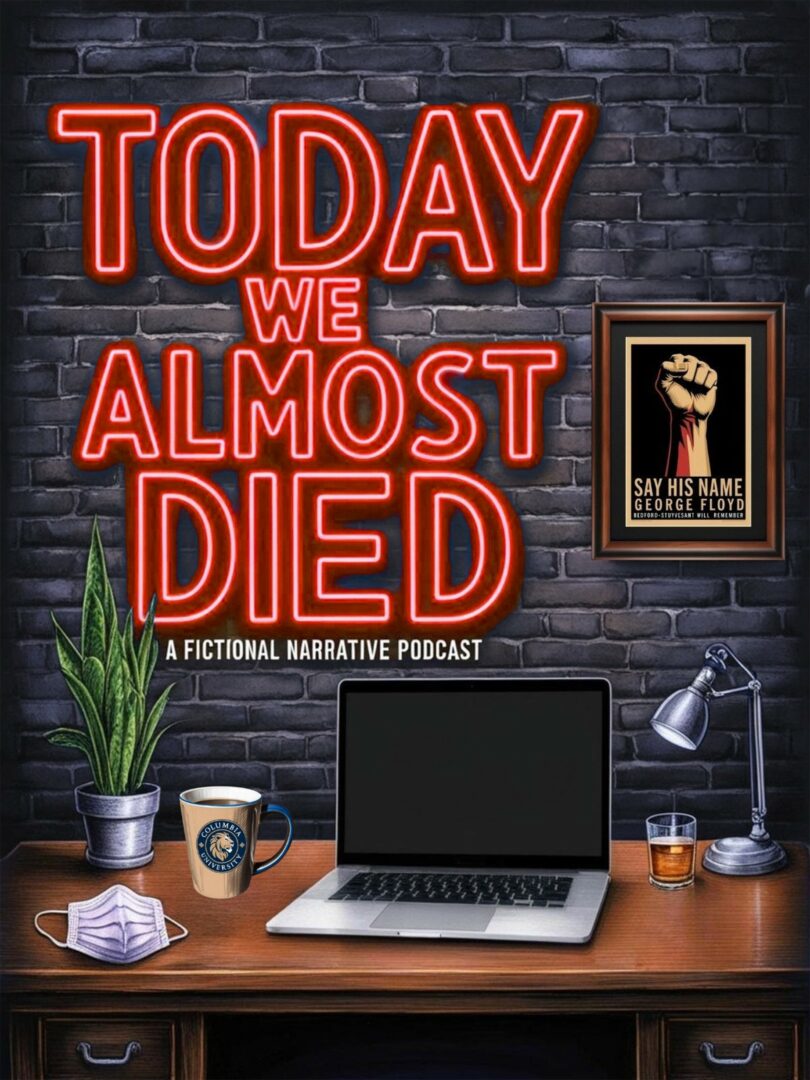
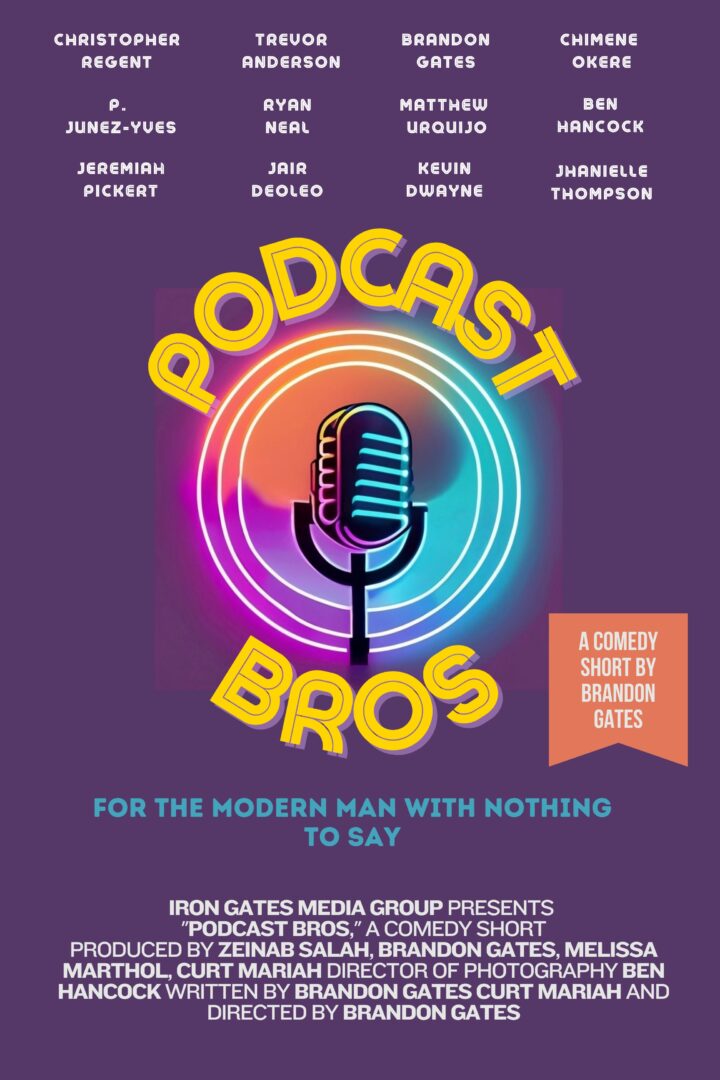
One of our goals is to help like-minded folks with similar goals connect and so before we go we want to ask if you are looking to partner or collab with others – and if so, what would make the ideal collaborator or partner?
I named my production company Iron Gates Media as a play on my last name, but also because I live by the proverb “Iron sharpens iron.” And right now? I need some iron in my life. Collaboration and partnership aren’t just welcome—they’re essential. It has never been my intention to go solo on this journey.
Sure, my parents raised me to be self-sufficient, but trying to carry an entire creative vision alone is like directing and holding the boom mic at the same time (which I have done before)—awkward, exhausting, and not nearly as effective.
I need my creative counterpart—my other Russo Brother, Coen Brother, Duplass Brother—the Malcolm to my John David Washington, the Stephen to my Donald Glover. (And let’s be clear, these people don’t have to be men—that’s just where my brain went first).
I want to write, produce, and direct (and occasionally act), but making that happen takes the right team. It also takes money. Right now, I’m sitting on a vault of short film scripts; scripts that aren’t just collecting dust but actual screenwriting awards. They’re ready to be made, but projects this ambitious can’t just wing it.
One thing I’ve learned? Plenty of people say they want to create, but their commitment is more of a cameo than a starring role. They show up once the heavy lifting is done, eager to slap their name on the credits. I’m looking for true collaborators—people who are in it from fade in to fade out.
Contact Info:
- Instagram: https://www.instagram.com/thebgates
- Linkedin: https://www.linkedin.com/in/brandonlgates/
- Twitter: https://x.com/TheBGates
- Youtube: https://www.youtube.com/@IronGatesMedia
- Other: [email protected]
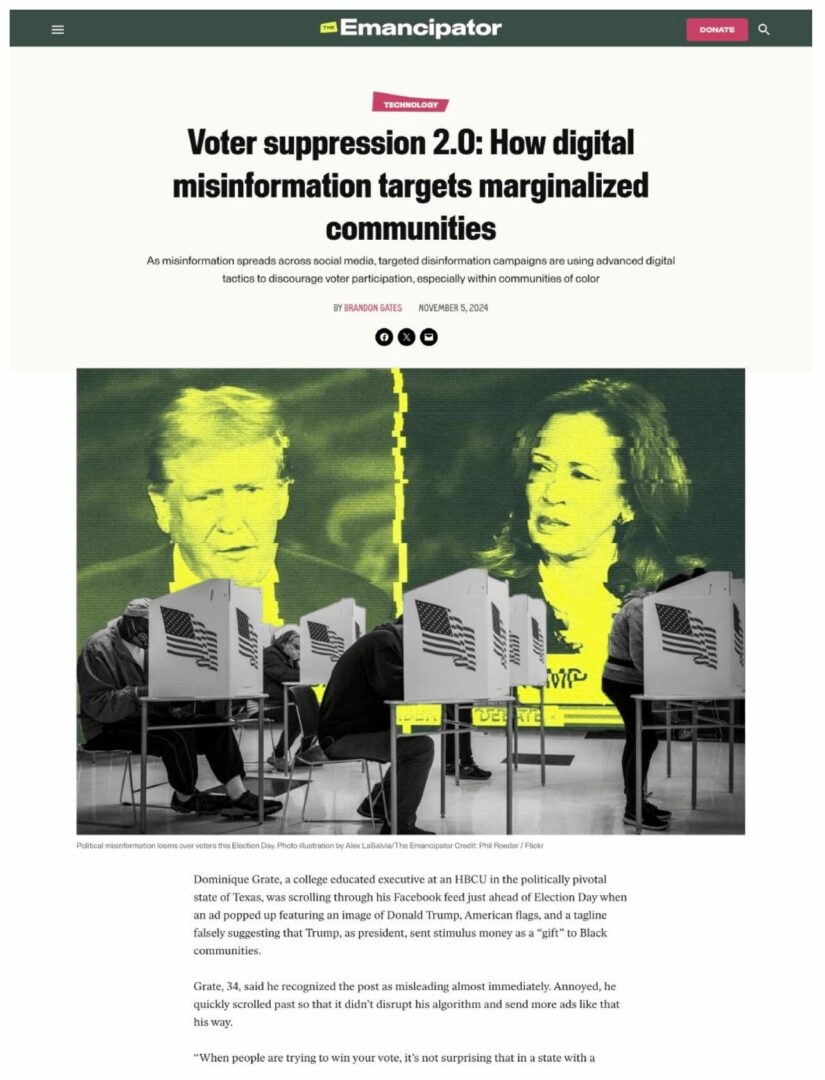
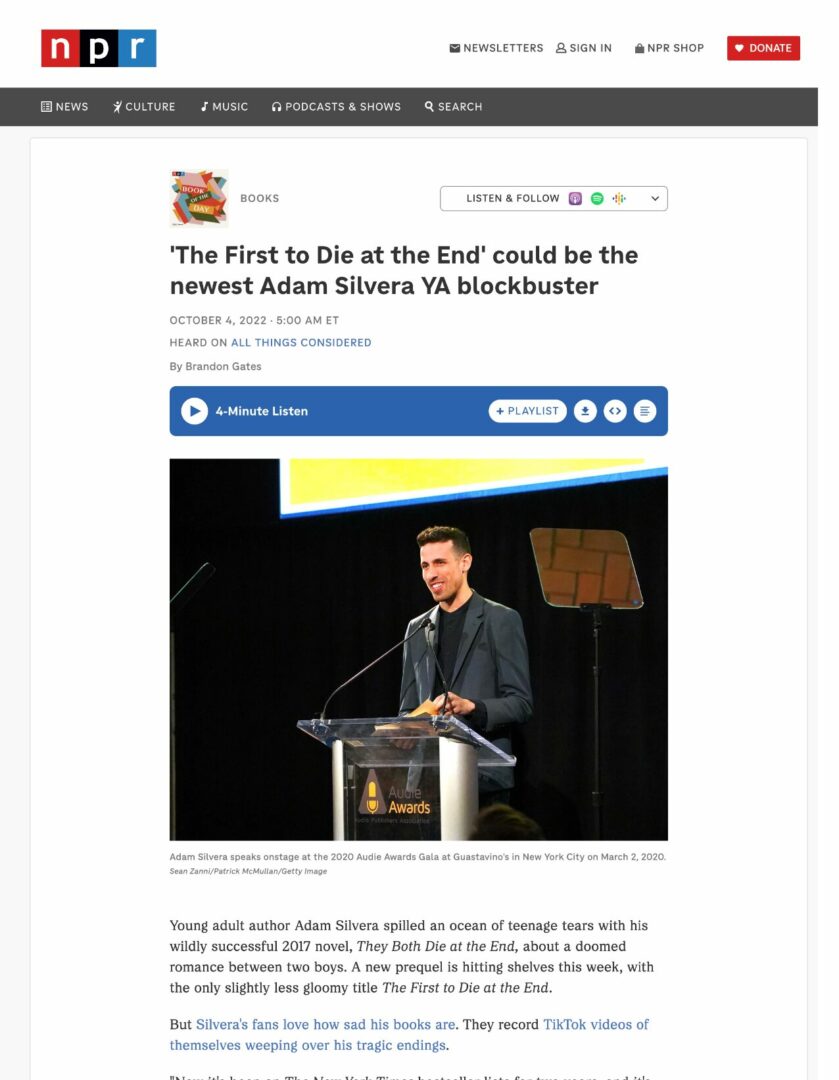
Image Credits
The black and white photos were taken by Kedrick Walker.
so if you or someone you know deserves recognition please let us know here.

